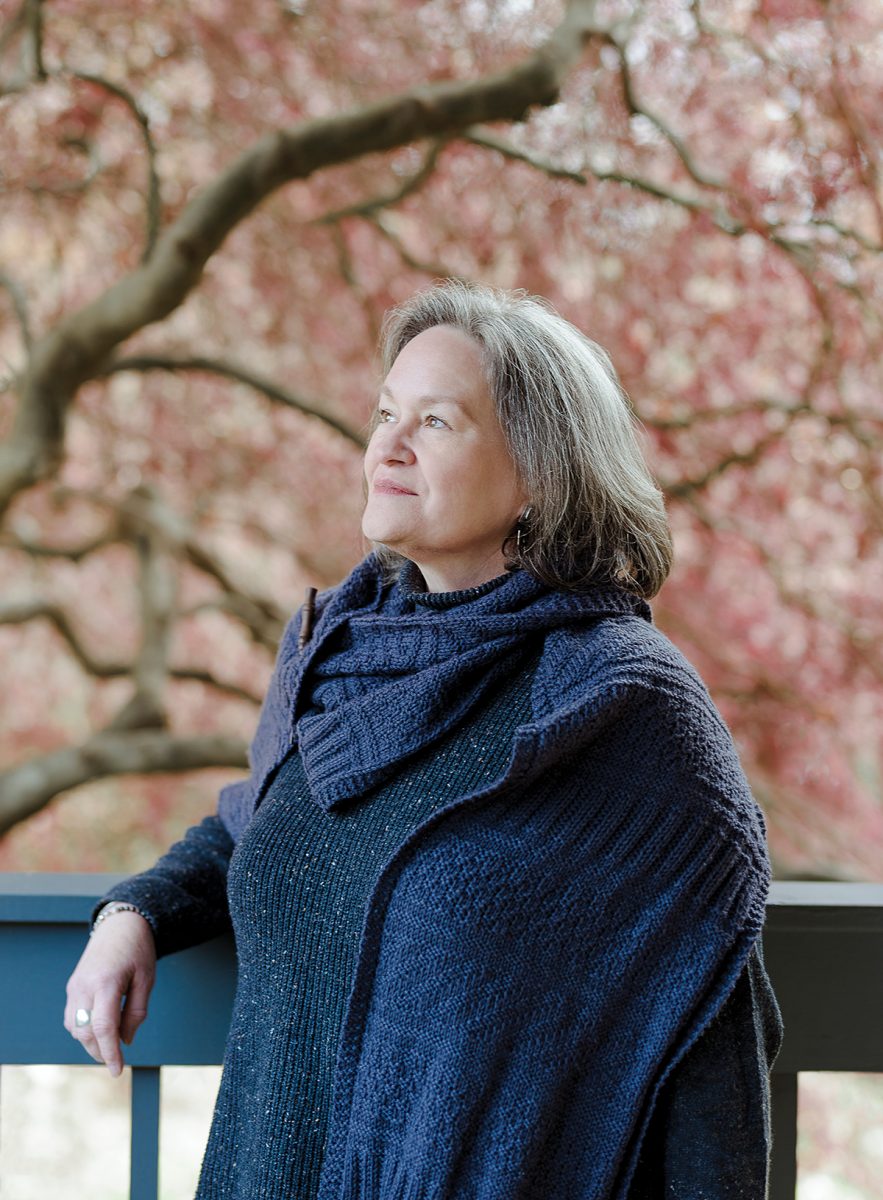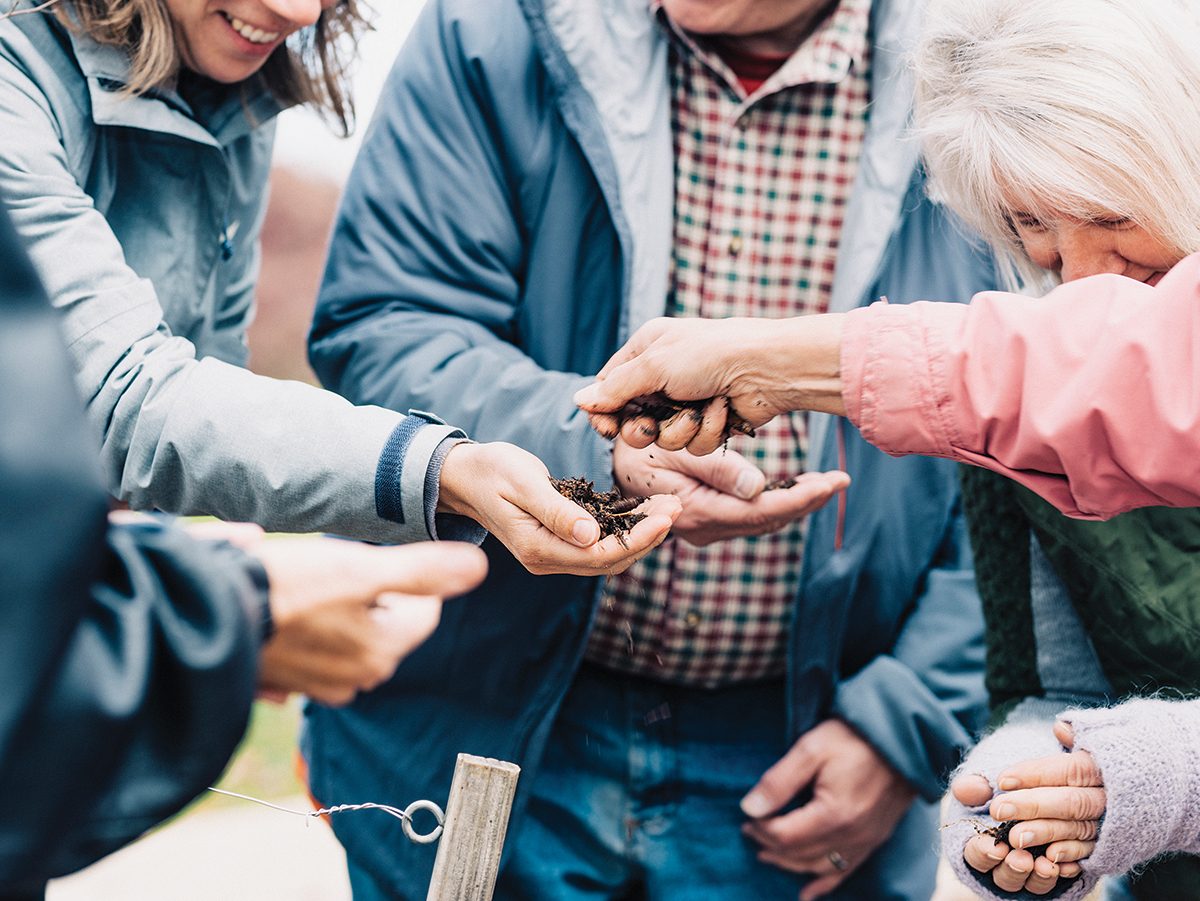Winter class prepares a new generation of “eco gardeners”

Rebecca Caldwell assembled a think tank of instructors to implement an eco-gardener curriculum.
Photo by Clark Hodgin
No directions on a pack of seeds can tell you how to maximize environmental sustainability. Maintaining a garden in fickle mountain weather is one local challenge — not to mention navigating hilly terrain or confronting areas of topsoil eroded by development. Even knowing what to plant in a changing climate can be tricky.
But now there’s a curriculum for all that. The Blue Ridge Eco-Gardener Certificate of Merit program, offered by the North Carolina Arboretum, is a 120-hour course that helps its students “understand how to design, create, and manage a healthy, self-sustaining garden and landscape,” according to a syllabus description. The initiative enters its third year this winter and boasts a dynamic collection of classes that focuses on producing environmentally-conscious gardeners.
Rebecca Caldwell, the Arboretum’s adult-education coordinator, recently chatted with Carolina Home + Garden about the growing movement.
There’s a lot involved. What’s the background on the Blue Ridge Eco-Gardener program?
We started it two years ago based on what we saw as a need in our region. A number of new residents were moving into the area and looking to build homes, or create landscapes for existing homes. What these newcomers encountered, and continue to encounter, are the challenges of living in this area: gardening on slopes, an abundance of water or too little water, established plant communities on sites that have been totally cleared — even of topsoil — by developers.
We wanted to start a program that would educate people on what it is that they have [in terms of land] before they envision what it is that they want to do [with that land]. One of the fundamental tenets of the program is that we’re not dealing with plants as discrete entities, but as parts of a community. A person might fall in love with a particular plant at their nearby garden center, but it might not be able to flourish in their specific landscape because the conditions won’t sustain it. Sustainability is a huge part of what we teach.
How was the curriculum created?
We consulted a number of experts and professionals working in the area. We basically formed a think tank made up of prospective instructors.
Clara Curtis, the Arboretum’s senior director for mission delivery, has designed our seasonal landscape exhibits for about 24 years. June Jolley, our production greenhouse manager, was also involved. So it was Clara, June, Nina Shippen [a landscape designer], Drake Fowler [the Arboretum’s CBO/CFO], and a number of botanists. It was a collective effort.
We already had an established community working with the Arboretum’s Blue Ridge Naturalist Certificate Program. Dan Lazar is the ecology instructor in that program, and we decided to carry that ecology class over as a requirement in the Eco-Gardeners program. We did that so people could learn what makes this region’s biodiversity unique.
The “Gardening in a Changing Climate” class seems particularly timely …
Laura Lengnick is the instructor for that class. She’ll be using text that explores the benefits of six gardening practices: building soil health, planting for the future, managing water naturally, growing organically, growing edibles, and cultivating community. She’ll also provide a lot of information from the Union of Concerned Scientists. Above all else, we want that class — and the program as a whole — to make people good stewards of the environment.
What’s the biggest mistake gardeners new to this area make?
I think it goes back to that notion of interdependence and sustainability. One of the most common mistakes is that a person will see something in a magazine, but then learn that it’s not sustainable for their particular landscape. Understanding what it is that you’re working with, and growing from there, is the best approach. We encourage an organic process.
Generally speaking, what kinds of people sign up for the Eco-Gardeners program?
The greatest number of students are people who are faced with landscapes they know nothing about. But there are also a number of people who have master-gardener certificates or are in the process of obtaining one. A lot of folks love taking classes in other disciplines, such as natural history, flora identification, health and wellness [i.e. yoga for gardeners], and fine arts and crafts [i.e. botanical-illustration classes]. I love to see that happen.

Photo by Clark Hodgin
So there’s a contingent of people going for a holistic approach.
Absolutely. I’m considering removing category names altogether because although people tend to first flip the catalog to their area of choice, they often say, “I didn’t realize you offered a garden journaling class,” or something like that. When it’s all said and done, we’re encouraging people to be astute observers so they can apply meaningful knowledge to their own landscape.
The North Carolina Arboretum, 100 Frederick Law Olmsted Way, Asheville. Classes for the Blue-Ridge Eco-Gardener Certificate of Merit program begin again in January 2020. For more information, call 828-665-2492 or see ncarboretum.org.
